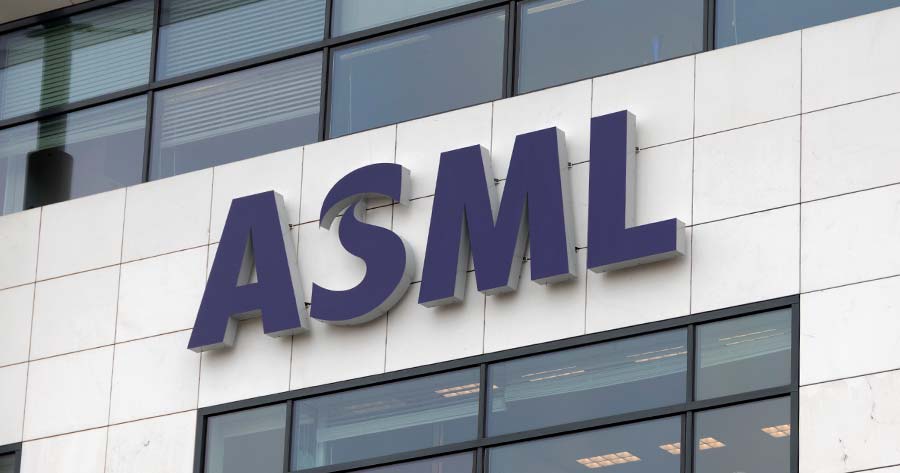ASML has revealed how U.S. restrictions on exports of its advanced chip manufacturing tools to China will impact its sales in the Asian country.
The Netherlands-based chip equipment maker, a critical part of the global chip supply chain, expects net sales for 2025 to be between 30 billion euros and 35 billion euros ($32.7 billion and $38.1 billion). The range is at the lower half of ASML’s earlier guidance.
In the earnings report for its third quarter performance, net sales surpassed expectations at 7.5 billion euros, however, net bookings came in at 2.6 billion euros, well below a 5.6 billion euro consensus estimate from LSEG.
This decline in bookings caused ASML’s shares to plunge 16%, potentially resulting in a loss of over $50 billion in market capitalization in a single day, based on LSEG data. Roger Dassen, ASML’s chief financial officer, cited U.S. export restrictions as a primary reason for the anticipated drop in sales to China next year.
China is a significant market for ASML, contributing 29% of its sales in 2023. However, the company expects that contribution to decrease to around 20% of total revenue by 2025.
Responding to these restrictions, China-based customers have been stockpiling the firm’s less advanced DUV machines, even though ASML has never sold its most advanced EUV machines to Chinese customers. This strategy explains the dramatic growth in sales to China during the first three quarters of 2024, with 49% of ASML’s sales coming from China in the second quarter of 2024.
In September, the Netherlands expanded export restrictions by bringing the licensing requirements for ASML’s machines under its purview, effectively taking over from the U.S. in controlling which machines ASML can export to other countries.
Ironically, Chris Miller, assistant professor of international history at the Fletcher School of Law and Diplomacy at Tufts University and author of the book “Chip War,” noted that these restrictions “have probably helped ASML on net, because China has accelerated purchases of older-generation DUV tools as a result.”
Despite this, several experts, including CFO Dassen and Abishur Prakash, founder of the Toronto-based advisory firm The Geopolitical Business, predict that sales and demand from China will likely decline in 2025.





